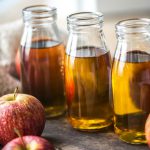If you are a vegetarian or vegan, you may already know that not all wines are vegan. This is possibly news for those meat-eaters out there and it really is quite fascinating. Since wine is made from grapes, many people think that it is vegan. Grapes are not an animal product but many winemakers use animal products during the winemaking process which means that there is a difference between regular wine and vegan wine.
The fining process
When wine is clarified, it goes through a process known as ‘fining’. Even vegan wines are hazy to begin with. This is because of the tiny molecules like tannins and proteins found in the wine. These are not harmful but they do affect the clarity of the wine. Since we choose our food and beverages based largely on appearance, it’s important to clear up the wine before it can be sold.
Stabilizing the wine
If left alone, most wines will stabilize on their own. However, winemakers have developed other methods of speeding things up. Fining agents are used to help eliminate these molecules that cause the hazy appearance. These agents work much like a magnet and they attract the loose molecules. They them coagulate which results in fewer, yet larger, particles which are easy to remove.
Types of fining agents
In order to produce vegan wine, the usual fining agents cannot be used. These agents include casein (from milk), albumin (from egg whites), gelatin (animal protein) and isinglass (protein from fish bladder). They are not considered additives but rather processing aids since they are removed along with the molecules that they are intended to eliminate. While most vegetarians accept the use of casein and albumin, this is not the case for vegans. This is because very small traces of the fining agent can remain in the wine after the process is complete.
Fining agents for vegan wine
So, if you are looking for vegan wine but you don’t know where to start, it’s also about determining how the fining was completed and the agents used. Clay-based agents like bentonite and activated charcoal are two popular options. Many winemakers are also choosing the most natural processes possible to keep their products as appealing as possible to vegans. This means that they leave wines to self-clarify and self-stabilize. If this is the case, the label will usually include the phrase ‘not filtered’ or ‘not fined’.
Vegan wine labels
Just as we can tell whether or not we are buying alcohol-free beer, we should be able to tell the difference between vegan wine and regular wine. This, unfortunately, is not the case. It is, therefore, important to make sure you do your research before buying a bottle of wine for a vegan friend or for yourself if you are vegan.
Vegan wine does not have a specific taste but, when you are following a particular lifestyle or if somebody you know is vegan, it’s important to respect these lifestyle choices. Even if you are not vegetarian or vegan, it’s considered courteous to be considerate of the preferences of others.


Be the first to post a comment.